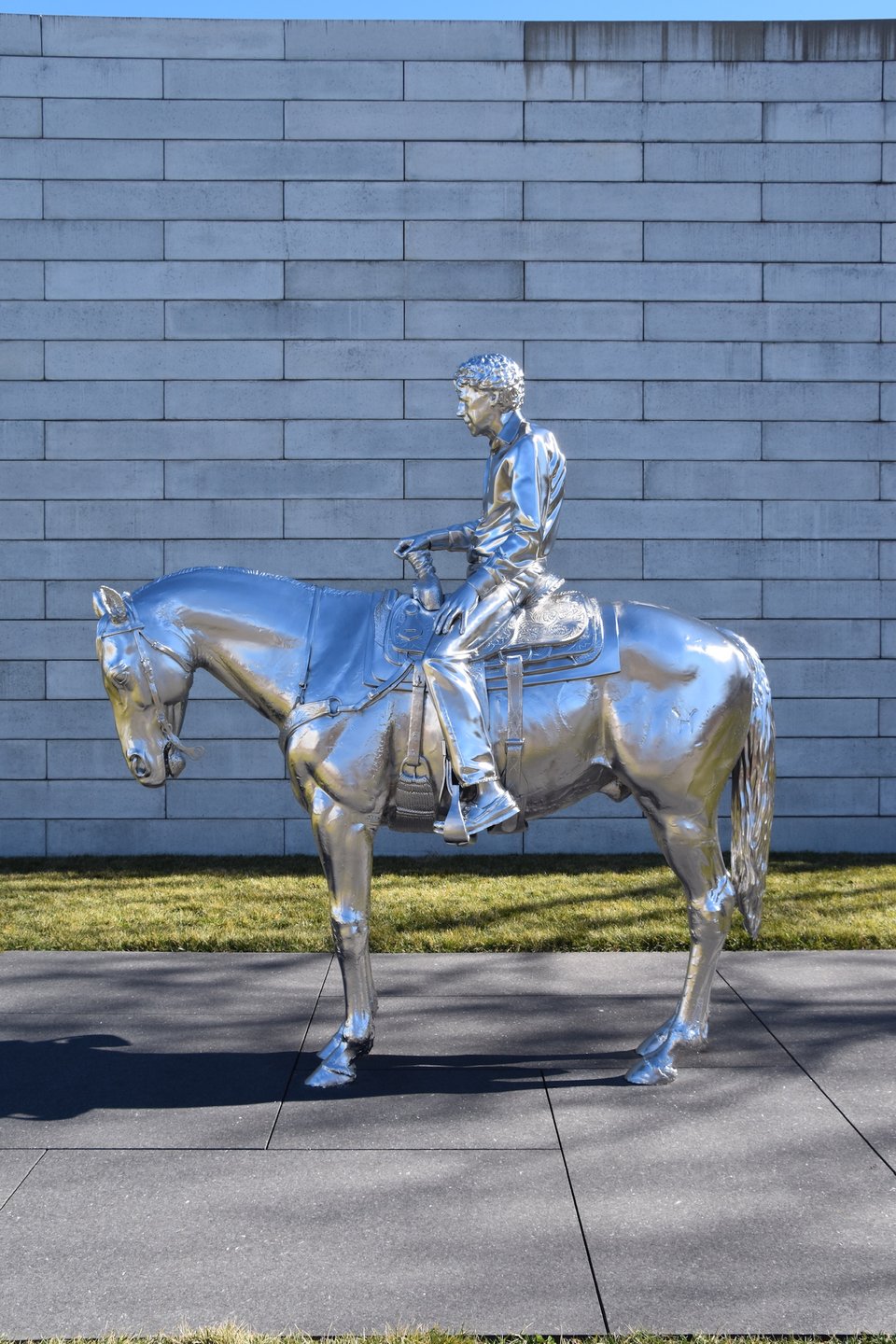Hello? Does this thing work? 🎤👈

Hello? Does this thing work? 🎤👈
Welcome to my newsletter, People in the Sun, which I intend to publish about twice each month. You will learn a little about me, my city (Washington, D.C.), and the wider world.
I read a lot—I mean A LOT—around the web and I will try to share topics on my mind and interesting thoughts from others.
🌎 The Big Topic: Loneliness
Loneliness has received increasing media coverage since the start of the pandemic, but data show the trends toward loneliness and diminished social connections predate Covid-19.
I chose this topic because of three things I read or listened to recently:
- 📝 Why Americans Suddenly Stopped Hanging Out: Too much aloneness is creating a crisis of social fitness. (Derek Thompson, The Atlantic)
- 🎧 What Relationships Would You Want if You Believed They Were Possible? There's a spectrum of relationship types, many of which don't have names in English. (Ezra Klein, New York Times podcast)
- 📝 A loneliness cure — make one friend a year (Emma Nadler, Washington Post)
In 2000, Robert Putnam published his groundbreaking Bowling Alone about Americans' declining trust and participation in institutions and community activities. As a political scientist, Putnam's point was that increasing atomization would diminish democracy and community cohesion.
(Relatedly, the decline of local news and the consequent nationalization of all politics has fueled political polarization and diminished civic engagement, but that's a topic for a future newsletter.)
I'd like to focus on the individual psychological impacts of loneliness, particularly because of the crushing isolation I suffered in 2020 due to the pandemic. Many weeks I went long stretches without any in-person interaction. This level of isolation was a stark and devastating change from my normal life, which I had carefully built around frequent social interactions with friends and family. I descended to a level of personal despair that I've shared with only a few people. I feel I had a year of my life stolen from me.
I took notice last year when the Surgeon General surprised many by declaring an "epidemic of loneliness and isolation" causing deleterious health effects "similar to that caused by smoking up to 15 cigarettes a day."
Since 2003, Americans spend more of their free time alone and less with people outside their own households. I'm somewhat cautious about those figures because, as Thompson notes, technology allows us to be physically alone while not necessarily lonely. Think of how much easier it is to text, tweet, and email scores of people from your couch today than it was in 2003.
Even still, 2020 taught me that a text threads and Zoom "happy hours," both mediated by screens, don't feel the same as seeing someone in person.
Behind a screen or not, Klein mentions one striking statistic that is especially dire for men:
In 1990, more than half of men reported having at least six close friends. In 2021, only about a quarter of men could say the same. 15 percent of men report having no close friendships, a five-fold increase in the number saying that from 1990.
That's not good. Close friendship has declined despite (or maybe because of) improvements in communications technologies.
Interestingly, Klein anecdotally touches a bit more on the gendered aspect of adult male friendship:
My gay male friends are so much better at friendship and have such a delightful, deep friendship community compared to virtually anybody else I know but particularly the straight men I know. It’s really striking to me.
Guest Rhaina Cohen responds with the idea of the greater necessity of chosen families:
I would think, particularly in queer communities, there is so much emphasis on friendship partly because people can’t necessarily rely on their families of origin to be the people who are going to ride through life with them because they might have rejected them because of their sexuality. So there’s this long history of friends being chosen family. So it really makes sense in the context of gay men.
However, I know plenty of gay men who are on decent terms with their families and yet spend heaps of time socializing with their friends. Maybe it's because they don't have kids and have the time to nurture their relationships with adults? Or maybe my anecdata suffer from selection bias?
📣 What do you think of any of this? Email me! 📬
🕺 Wandering around outside Washington
I recently had the chance to revisit the Glenstone Museum in Montgomery County, Maryland.





Glenstone's architecture is itself part of the art collection. Every time I go, I noticed the windows, many of which are massive panes of glass stretching 30 feet (9 m).
Glenstone provides few interpretive plaques in its collection, but staff stationed throughout the gallery can answer any questions visitors have about the art. The museum says it wants to avoid "didactic text that guides you to a certain way of thinking."
However I would've benefited from more context around Felix Gonzalez-Torres's Lover Boys, a pile of wrapped candy visitors are encouraged to pick from and eat. A week after my I was reading the book for the National Portrait Gallery's 2010-2011 controversial exhibit, Hide/Seek: Difference and Desire in American Portraiture, and saw Gonzalez-Torres had a similar candy work in that show. One common, though disputed, interpretation is that the slow diminishment of the candy alludes to the slow withering away of his deceased partner from AIDS in 1991.
Had I known that interpretation as I unwrapped the candy, I would have given the work more thought.
🔗 Assorted Links
- 📝 City Planning's Greatest Innovation Makes a Comeback: Long Live the Street Grid! (M. Nolan Gray, The Atlantic)
- 📝 To Save San Francisco, a Democrat Wants to Scrap Environmental Reviews. A California state senator wants to exempt Downtown S.F. from C.E.Q.A. (New York Times)
- 📝 Madrid is Booming: Growing while keeping its cool will be the tricky part. (The Economist)
- 📝 How San Francisco staged a surprising comeback: Forget the controversy. America’s tech capital is building the future (The Economist)
- 📝 The East Coast is Sinking. Groundwater depletion is the culprit, though a few spots in Maryland and Florida are rising. (New York Times)
- 📊 Data Reveals Loneliest Cities in America 2024. D.C. leads the list of cities with the most one-person (again, different from "lonely") households. (Chamber of Commerce)
📊 The Number
Percentage of Americans who say the follow professional or college sports "not too" or "not at all" closely.
- 📝 Source: Most Americans don’t closely follow professional or college sports (Pew Research Center)
- 📝 Cited in: D.C. Should Let Its Billionaire Sports Owner Extort Someone Else: If Virginia wants to line his pockets and take the Wizards and Capitals, the city shouldn’t stand in its way. (David Faris, Slate)
🎬 The Wrap

Russian dissident Alexei Navalny paid the ultimate price for his civic courage. I'll conclude with an observation he published in 2022:
In the 31 years since the collapse of the U.S.S.R., we have witnessed a clear pattern: The countries that chose the parliamentary republic model (the Baltic states) are thriving and have successfully joined Europe. Those that chose the presidential-parliamentary model (Ukraine, Moldova, Georgia) have faced persistent instability and made little progress. Those that chose strong presidential power (Russia, Belarus and the Central Asian republics) have succumbed to rigid authoritarianism, most of them permanently engaged in military conflicts with their neighbors, daydreaming about their own little empires.